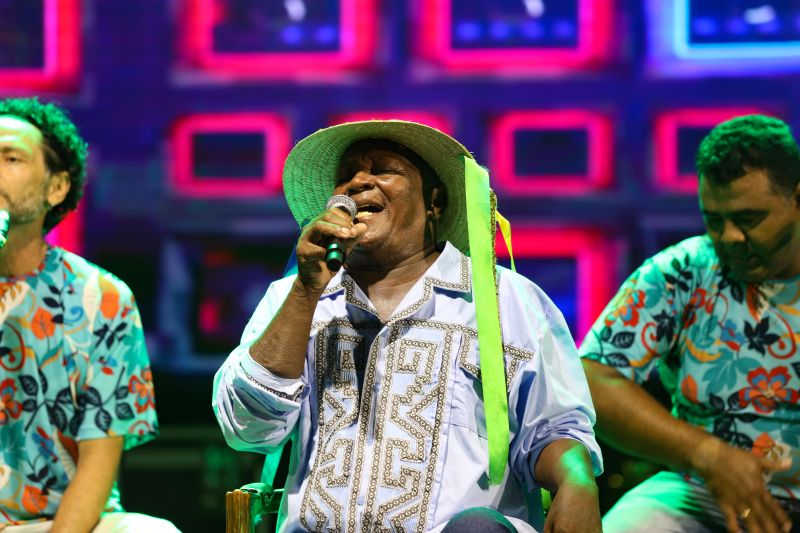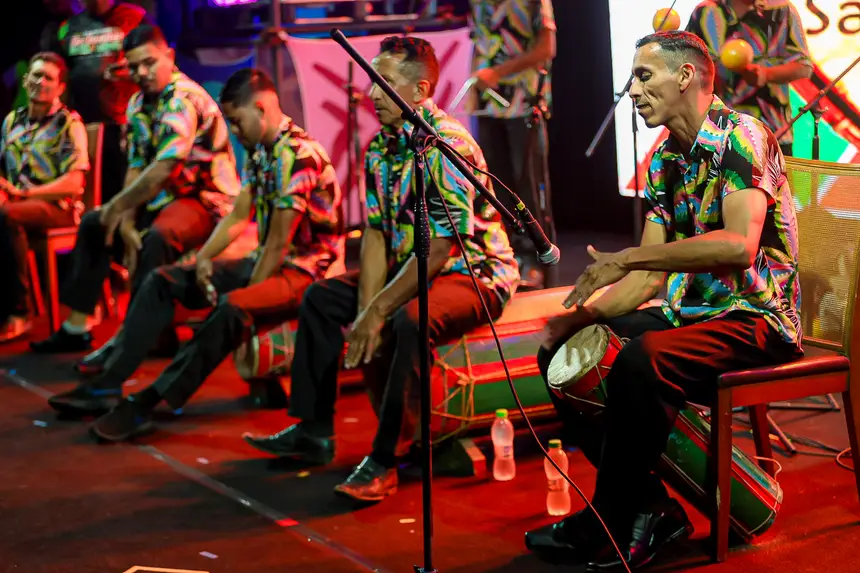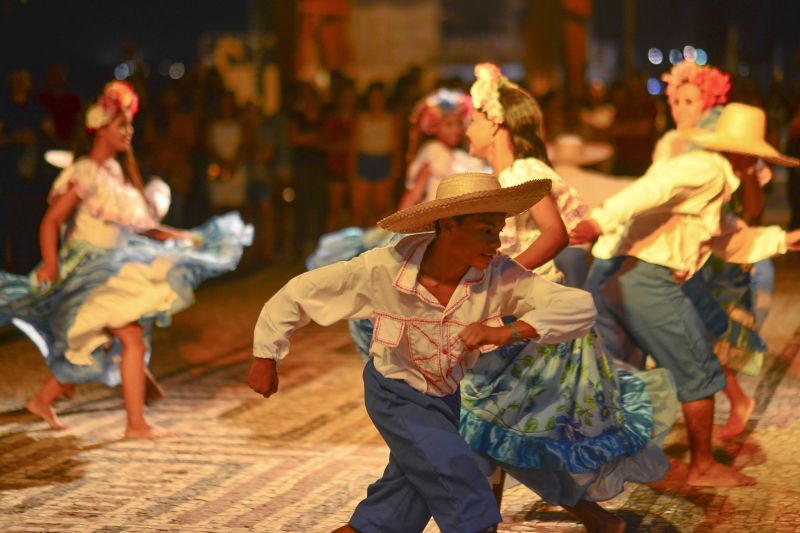State celebrates Carimbó Day with initiatives to value the immaterial heritage of Pará
Public policies ensure the continuity of tradition and the recognition of icons of popular culture, such as Mestre Damasceno, who passed away this Tuesday

The Municipal Carimbó Day, celebrated on August 26, highlights one of the greatest symbols of Pará's culture. The rhythm and dance, born from exchanges between indigenous peoples, have conquered the territory of Pará, integrating into the identity of the people of Pará. The Government of Pará, through the State Secretariat of Culture (Secult), has been promoting various initiatives to value and safeguard carimbó in recent years.
Recognized as an Immaterial Cultural Heritage of Brazil by the National Institute of Historical and Artistic Heritage (Iphan) since 2014, carimbó carries the cultural identity of Pará and remains alive thanks to the contribution of numerous masters and mistresses. Since 2019, Secult has committed to strengthening the safeguarding of carimbó and other cultural heritages of the State. Among the actions, investments of R$ 5 million in calls for proposals aimed at Immaterial Heritage, directly benefiting carimbó, stand out.
Through the Aldir Blanc and Paulo Gustavo laws, and the National Aldir Blanc Policy, more than 240 awards aimed at valuing immaterial cultural heritage have already been made possible.

Social construction - The State Secretary of Culture, Ursula Vidal, emphasizes that all actions of the state government are always guided by the Carimbó Safeguarding Plan. “This document is extremely important, the result of a broad social construction. Whether at the Pan-Amazonian Book and Multivoices Fair, in the calls executed by Secult, in the performances of the artistic bodies of Theatro da Paz, or in the cultural actions that make up our calendar, the valorization of the practices and knowledge of carimbó masters and mistresses is an essential part of our institutional mission,” says the secretary.
“With the implementation of the National Aldir Blanc Policy, built in dialogue with the State Council of Culture, we have consolidated a permanent award call aimed at masters and mistresses of popular culture, in which carimbó is one of the strongest expressions. We are also conducting a cultural mapping to identify the spaces for maintaining this tradition, as well as its guardians. Carimbó is the face of Pará, and it vibrates strongly in our dancing spirits,” adds Ursula Vidal.

Tribute to Mestre Damasceno - Among the recent initiatives, the choice of Mestre Damasceno as one of the honorees at the 28th Pan-Amazonian Book and Multivoices Fair stands out. An emblematic name of Amazonian popular culture, Mestre Damasceno was a reference in carimbó, toadas, and oral poetry. This Tuesday, precisely on Carimbó Day, the master passed away at the age of 71.
During the Book Fair - held from August 16 to 22 - in Belém, Secult launched the book “Mestre Damasceno and the Songs of Marajó,” organized by journalist Antônio Carlos Pimentel Jr. and illustrated by Mandy Modesto. The work narrates the life story of the quilombola from Salvaterra, in the Marajó Archipelago, from childhood, through the creation of the Búfalo-Bumbá, participation in parades in the Rio de Janeiro carnival, and a career as a composer and master of carimbó and Amazonian culture.
In the Fair's program, Mestre Luizinho Lins, from Icoaraci (a district of Belém), brought a group of children for a performance in honor of his friend. “Personally, it brought me a lot of emotion to be part of it, as the honoree was my friend, Mestre Damasceno (the royalty of Marajó), who was very deservedly highlighted by the Fair. We presented songs from the master and composer of Icoaraci in a space of national dimensions. This is a joy, especially bringing a new generation to the stage, who are just starting to learn about popular culture now, the instruments,” reported the master, who has already been awarded in a Secult call.

Recognition and strengthening of ancestry - Mestra Jesus, also awarded in a call, reinforces the importance of recognizing carimbó as immaterial heritage. “The importance of this recognition is for the preservation of identity regarding the culture of a people, as well as their traditions, so that they can be passed down from generation to generation, with the aim of recognition and strengthening of ancestry,” she emphasizes.
The choice of the date — August 26 — refers to the birth of Mestre Verequete (Augusto Gomes Rodrigues), recognized as the King of Carimbó, who originally expanded the diffusion of the rhythm. Mestre Verequete passed away in Belém in 2009 at the age of 93. Three years later, he was posthumously awarded the title of Commander of the Order of Cultural Merit from the Ministry of Culture — the same honor received this year by Mestre Damasceno, one of the most important distinctions from the Federal Government.










